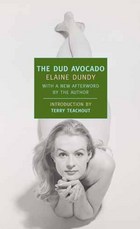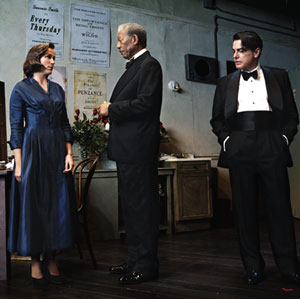Remember that point in Bleak House when Krook, the drunken rag-and-bone guy, spontaneously combusts in his shop? In my mind I always related the fatal combustion less to Krook’s drinking than to his oiliness and the general blackness of his soul, as if he were a one-man grease fire lit by his own evil (as it were).
Then a couple weeks ago, Wait Wait… Don’t Tell Me! had a segment on Prohibition, and one of the questions had to do with the claim of early temperance activists that alcohol consumption could lead to spontaneous combustion, the logic being that alcohol burns.* And I thought, “Krook! Krook!”
Sure enough, that’s the folk belief that Dickens drew on to plot Krook’s end. Although, according to this website (be warned: there’s a spooky photograph there that Will Haunt Your Dreams), Dickens maintained that Spontaneous Human Combustion (SHC) wasn’t superstition but fact:
Krook was a heavy alcoholic, true to the popular belief at the time that SHC was caused by excessive drinking. The novel caused a minor uproar; George Henry Lewes, philosopher and critic, declared that SHC was impossible, and derided Dickens’ work as perpetuating an uneducated superstition. Dickens responded to this statement in the preface of the 2nd edition of his work, making it quite clear that he had researched the subject and knew of about thirty cases of SHC. The details of Krook’s death in Bleak House were directly modeled on the details of the death of the Countess Cornelia de Bandi Cesenate by this extraordinary means; the only other case that Dickens actually cites details from is the Nicole Millet account that inspired Dupont’s book about 100 years earlier.
Now, you have to consider any Google search that has already delivered the sentence, “Over the past 300 years, there have been more than 200 reports of persons burning to a crisp for no apparent reason,” as a clear success. But there’s more!** The incidents surrounding the death of the Countess are covered in detail here. Meanwhile, the BBC website sheds light on the other case Dickens mentioned in his preface, Nicole Millet’s death:
However, the first reliable documentation of SHC dates back to 1763 when Frenchman Jonas Dupont compiled a casebook of SHC cases in a book called De Incendiis Corporis Humani Spontaneis, having been compelled by the Nicole Millet case, which involved a man who was acquitted of the murder of his wife when the court ruled that the unfortunate woman’s death had been due to spontaneous combustion.
Nicole Millet was the wife of the landlord of the Lion d’Or in Rheims, who was supposedly found burnt to death in an unburnt chair in February, 1725 (on Whit Monday). Her husband was accused of her murder and arrested; however, a young surgeon named Nicholas le Cat managed to convince the court that her death was caused by SHC. The court ultimately ruled her death as ‘by a visitation of God.’ However, the investigative author Joe Nickell stated in his book, Secrets of the Supernatural, that Millet’s body was not actually found in the chair, but that a portion of her head, several vertebrae and portions of her lower extremities were found on the kitchen floor, the surrounding ground of which had also been burnt. Three accounts were cited: Theodric and John Becks’s Elements of Medical Jurisprudence (1835), George Henry Lewes’s Spontaneous Combustion from Blackwoods Edinburgh Magazine No. 89 (April 1861) and Thomas Stevenson’s Principals and Practice of Medical Jurisprudence (1883). Strangely, there was no mention of Nicholas le Cat.
Emphasis mine.
* Another rationale for the belief, proferred at the BBC website, is that “a body saturated with such combustible fluids would be prone to combustion at the slightest spark.” However, the article continues reassuringly, “the concentration of alcohol in a body would never be high enough for ignition to occur.”
** If this post is tending a little ghoulish, my apologies. I spent most of the summer of 1978 (age 7) suffering from a morbid fear/hope that I might spontaneously combust at any moment after my best friend J. brought up the possibility during a sleepover. So, in addition to clarifying all things Krook, this research was psychologically cathartic.


 Two of America’s best actors opened on Broadway this week in a pair of plays that don’t suit their talents. Such disappointments are a necessary part of the career of every serious artist who is brave enough to take chances, but some chances are better than others, and I wish that Morgan Freeman and Laura Linney had chosen more suitable vehicles for their long-awaited returns to the New York stage.
Two of America’s best actors opened on Broadway this week in a pair of plays that don’t suit their talents. Such disappointments are a necessary part of the career of every serious artist who is brave enough to take chances, but some chances are better than others, and I wish that Morgan Freeman and Laura Linney had chosen more suitable vehicles for their long-awaited returns to the New York stage.